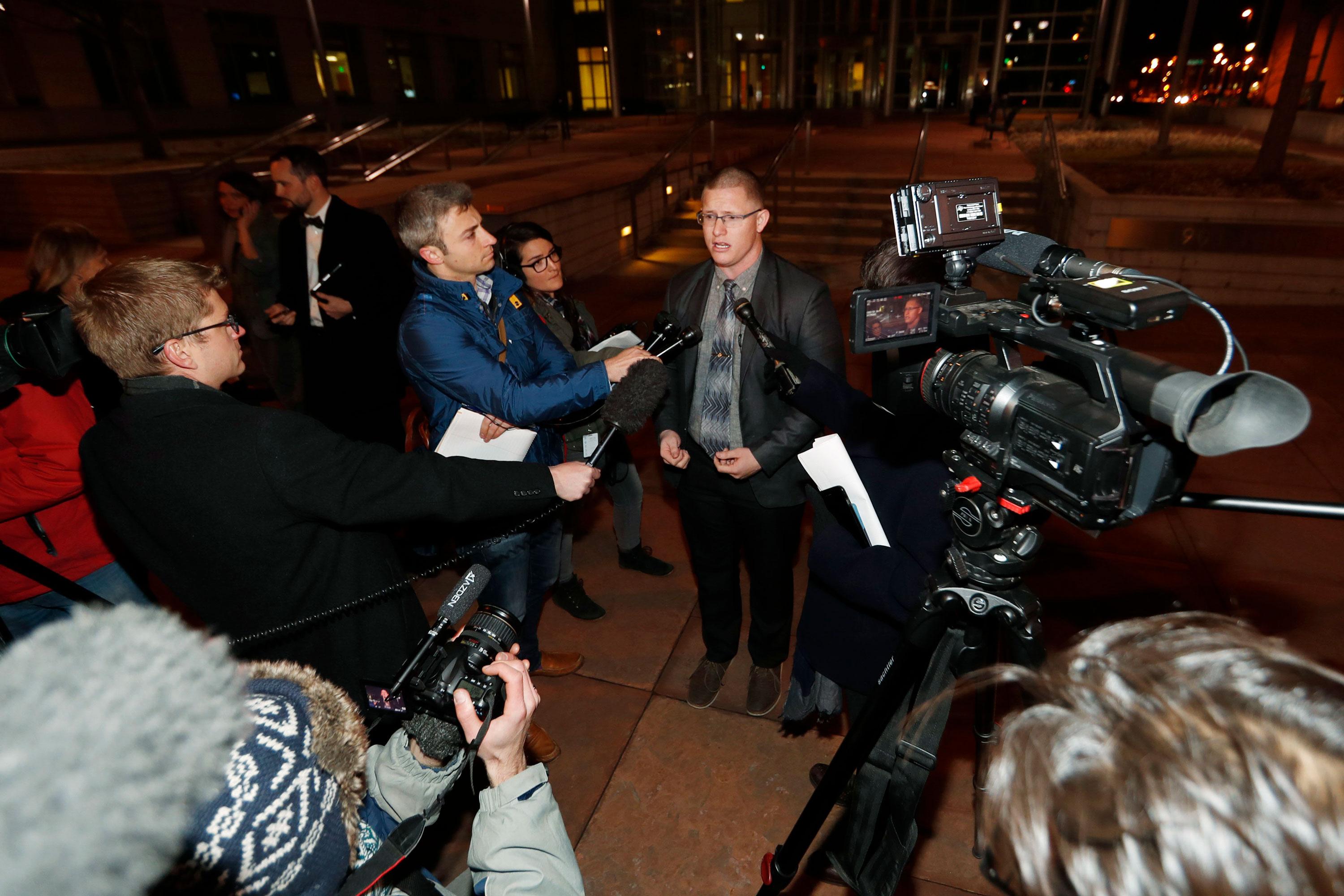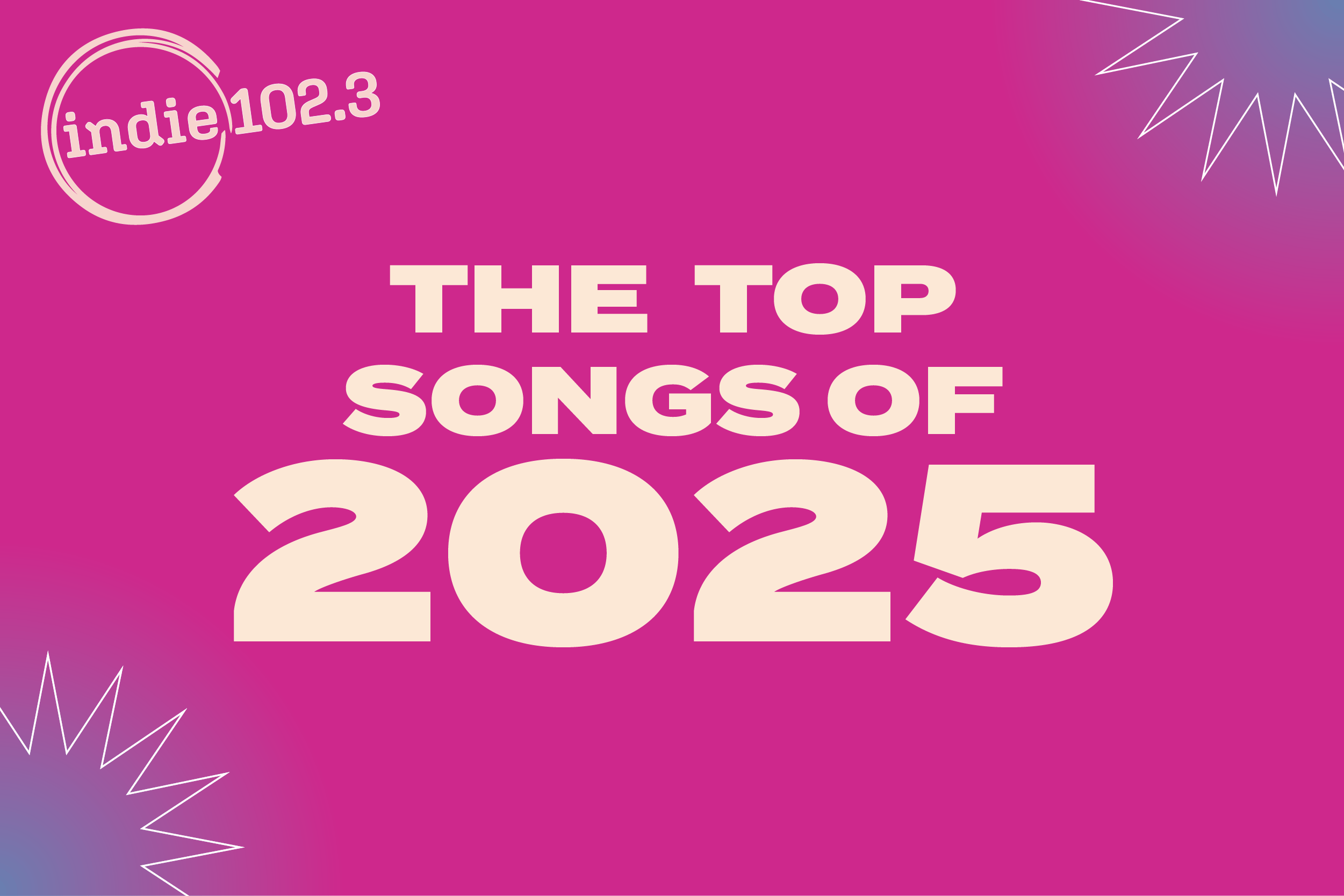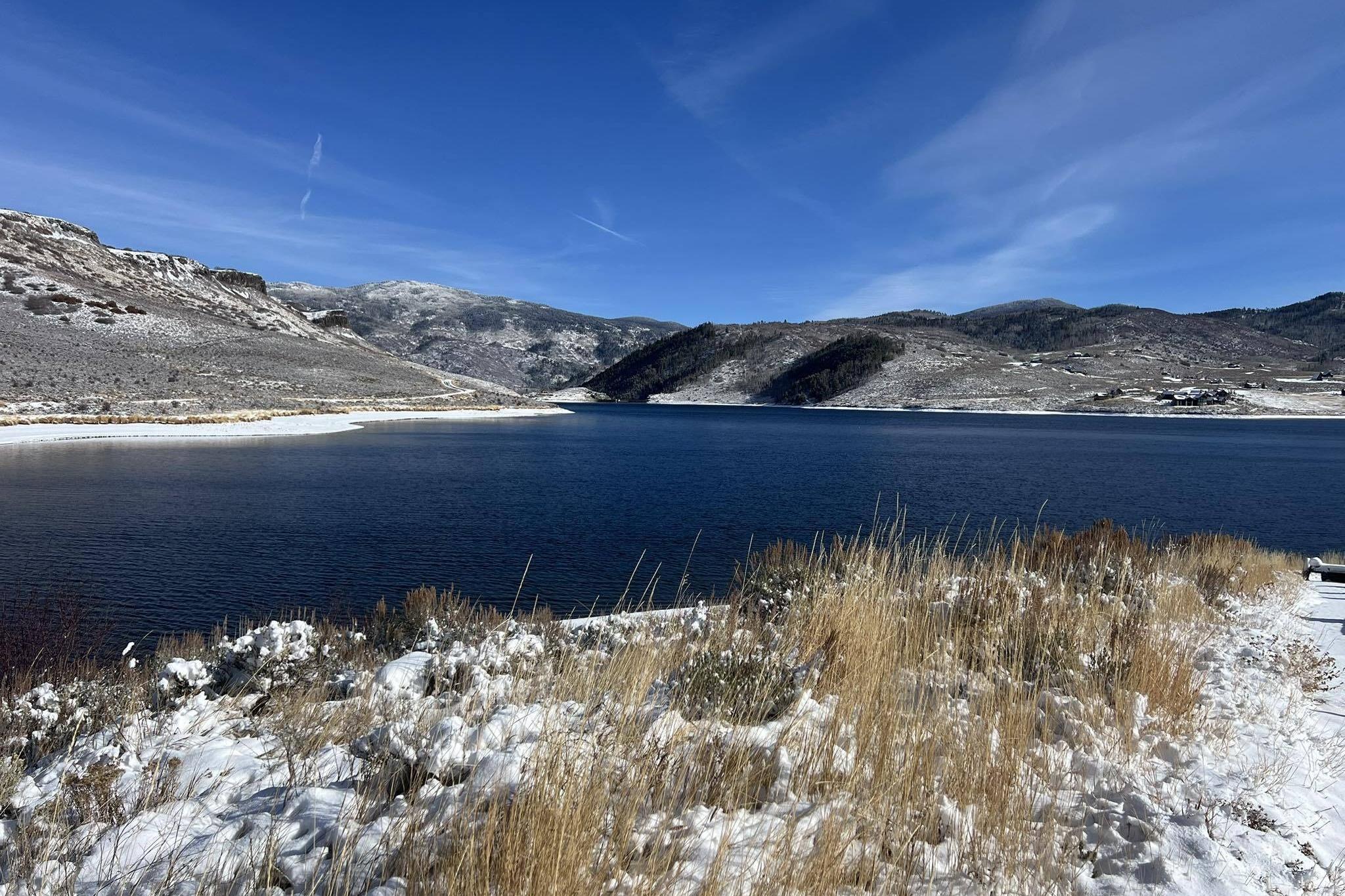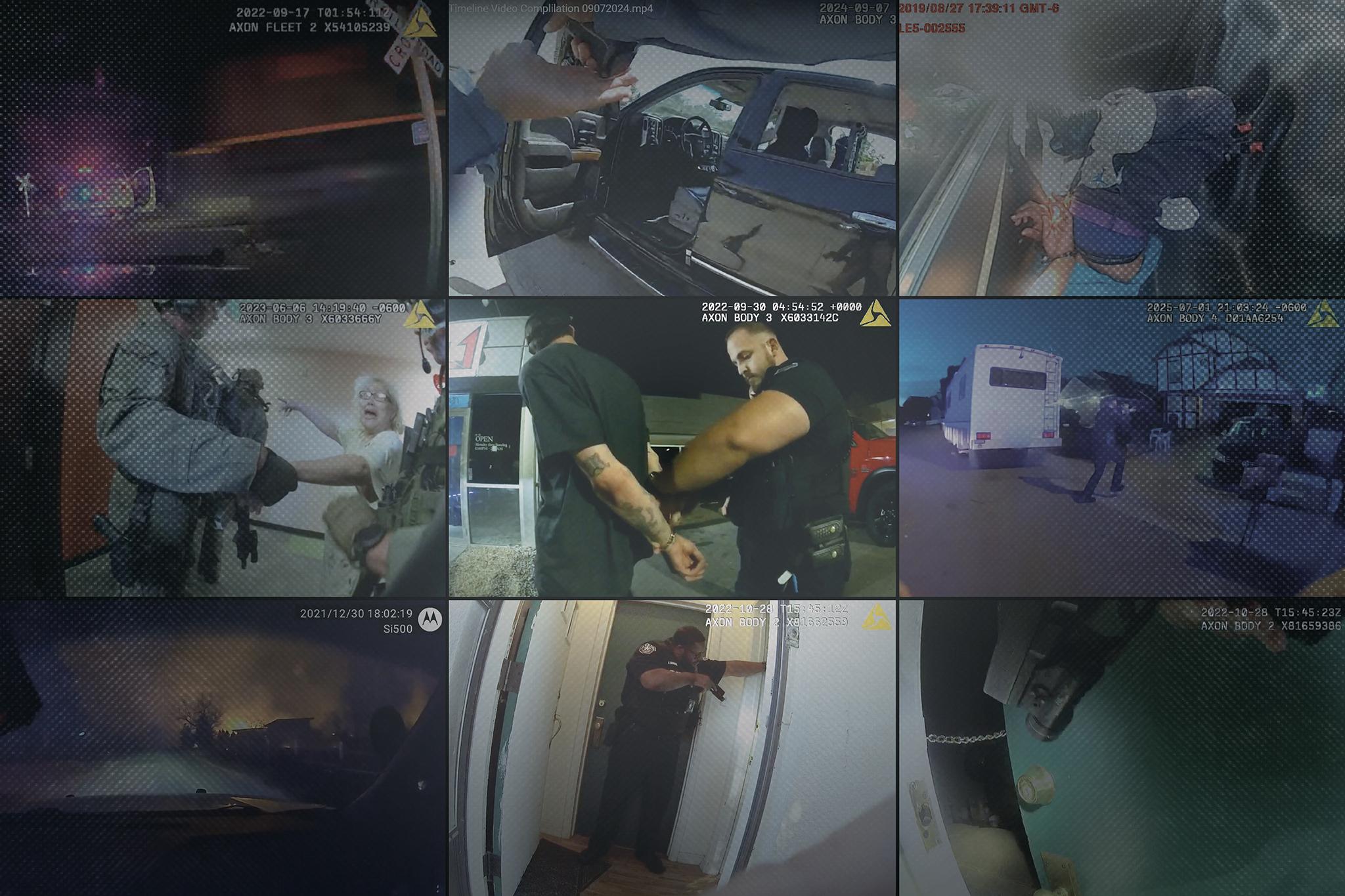
Updated 9:21 a.m.
In a unanimous decision, the U.S. Supreme Court upheld a basic assumption of the country’s electoral system, reducing the possibility that a state’s Electoral College votes would be delivered to someone other than the winner of its presidential election.
The cases before the court focused on electors, the people who translate hundreds of millions of ballots into just 538 votes in the Electoral College. The central question was whether electors in Colorado and Washington have the freedom to cast their ballot for any candidate, or whether they must follow the will of the people.
The answer in Monday’s ruling was dead simple.
“The Constitution’s text and the Nation’s history both support allowing a State to enforce an elector’s pledge to support his party’s nominee—and the state voters’ choice—for President,” read the ruling, delivered by Justice Elena Kagan.
The so-called faithless electors case started in Colorado in 2016 when Democratic elector Micheal Baca attempted to cast a ballot in the Electoral College for John Kasich, despite the fact that Hillary Clinton won the popular vote in Colorado.
Baca was removed by state officials and replaced by someone who supported Clinton. He then sued the state over his removal in federal court and eventually, the 10th Circuit Court of Appeals sided with him.
The court on Monday actually ruled on a parallel case that arose in the state of Washington, and then applied that ruling to the Colorado case.
The ruling rejected the argument that electors have “free will” when it comes to voting in the Electoral College. Instead, states can use legal penalties to force electors to follow the will of the state’s voters and to fulfill their pledges to the political parties.
“Nothing in the Constitution expressly prohibits States from taking away presidential electors’ voting discretion,” the court ruled.
'Best to know the rules of the road'
The Electoral College was created as a compromise during the nation’s founding. In the first presidential contests, most state legislatures would appoint electors who would then cast votes in the college.
Today, of course, every state holds a popular vote. The electors are largely a formality, translating the results of the election into an Electoral College vote. But on rare occasions, the electors try to make their own decision instead.
Baca’s lawyer told the high court that presidential electors are “real humans” with discretion and free will and the Constitution guarantees them the right to make whatever decision they want.
In most states, electors must pledge to support their party’s nominee and, by extension, the will of the people. Fifteen of those states have laws that penalize and often replace rogue electors.
The justices upheld those laws, said that giving free rein to electors would go against historical precedent. “From the first elections under the Constitution, States sent electors to the College to vote for pre-selected candidates, rather than to use their own judgment. The electors rapidly settled into that non-discretionary role,” the ruling stated.
About 180 out of 23,000 electors have tried to cast “faithless” votes in U.S. elections history, although dozens of those followed a candidate’s death. They have never altered the final result of an election.
The high court heard a similar case in 1952 when it decided that Alabama Democratic Party could require its electors to pledge their support for victorious Democratic candidates. But the justices had never decided whether a state could use legal sanctions to enforce those pledges.
The group Equal Citizens brought the modern-day case, arguing that the nation should decide this matter before it becomes an issue during a live election.
“It’s best to know the rules of the road going in, and choosing the President is one very strange area not to know all the rules,” the group stated.
Equal Citizens said it was arguing for the constitutional rights of electors, but it also claimed that if it won, it would have further revealed “a system badly in need of reform” and potentially encouraged the adoption of the National Popular Vote.
Justices signaled concerns about unbound electors
In oral arguments via telephone in May, the Supreme Court justices seemed uncomfortable with electors exercising total discretion, saying that could create “chaos” around presidential elections in the United States.
In questioning Baca’s attorney, Jason Harrow, Chief Justice John Roberts asked whether electors could truly just “flip a coin” and decide who they wanted to support — even after voters from a state had gone to the polls and chosen a presidential candidate.
Harrow said, yes, that the electors had the discretion to do that.
Roberts cut him off, “That sounds pretty limitless to me.”
But the justices also pushed Attorney General Phil Weiser on how much a state could dictate how electors should operate. What if a state legislature required an elector to only select a presidential candidate who had visited the state? Or endorsed a certain set of political beliefs?
Weiser said the states could only operate under the Constitution, that states could not remove electors based on race or religion, for example, and states could not bind an elector to vote for someone who was not qualified to be president of the United States.
But Weiser did acknowledge the states have the freedom to craft their own laws.
“I don’t see a constitutional reason why a requirement to visit the state is flawed … but again that’s far from this case in Colorado,” Weiser said.
How far could electors go?
Justice Clarence Thomas pushed Baca’s attorney Harrow on whether electors could truly vote for anyone they wanted for president — he used Frodo Baggins as an example, the protagonist of Lord of the Rings.
“What’s the accountability here for an elector if they stray from what’s expected?” Thomas said to Harrow. “The elector who had promised to vote for the winning candidate could suddenly say, you know, I’m going to vote for Frodo Baggins. I really like Frodo Baggins … You can’t do anything about that.”
Harrow countered that elector would be thrown out.
“That would be a vote for a non-person … I do think the important point is the Framers hashed out these competing concerns,” Harrow said. “Electors are best placed to make the ultimate selection. That hasn’t changed.”
In Colorado, electors are chosen by state delegates in a party process and must be Colorado residents. It’s made clear when they take an oath that they are required to support the candidate chosen by voters.
Elector rebellion is, so far, untested
Monday's opinion was also issued in conjunction with a ruling in a similar case out of Washington state; an elector there was fined $1,000 for not supporting Clinton in the Electoral College.
The debate about the role and power of electors is essentially theoretical so far: no elector rebellion has ever gotten close to throwing a presidential election.
In 2016, about a dozen electors across the country rebelled and supported a candidate other than Hillary Clinton or Donald Trump, part of a loose effort to throw the election to the U.S. House of Representatives. But the effort wasn’t sufficient to prevent Trump from getting enough electoral college votes to win the election.
"People believe that their votes count in the presidential election, and that's what the Supreme Court just reaffirmed," said Secretary of State Jena Griswold after the opinion was published. "state can dictate through state law that the people will be the influence on how electoral votes go."








